The BIGGEST nutrition mistake triathletes are making (and how to avoid it)

When it comes to nutrition, triathlon is different to any other sport because you're training and fuelling for 3 sports not 1!
When you have that dialled in – you will have more energy, get to your ideal body composition, recover faster, perform better in the second/third session for the day and not be stuck on the couch after long rides – SUPERCHARGED!
The BIGGEST mistake triathletes make when it comes to their nutrition? To be honest, there are MANY! But I think the top three biggest mistakes triathletes make are:
Recovery nutrition
- Most triathletes suck at recovery (no offence)
- You need to understand how to receive properly for you
- You might think you do alright, but once you understand what you need for you, it’s often not dialled in.
Not fuelling properly during training
- Different strategies for different types of sessions, seasons and goals
- Triathletes often under fuel thinking this will help with fat loss. Wrong!
- Often triathletes wing it – no plan, not org...
Why focusing on long-term health is so important for performance as a triathlete
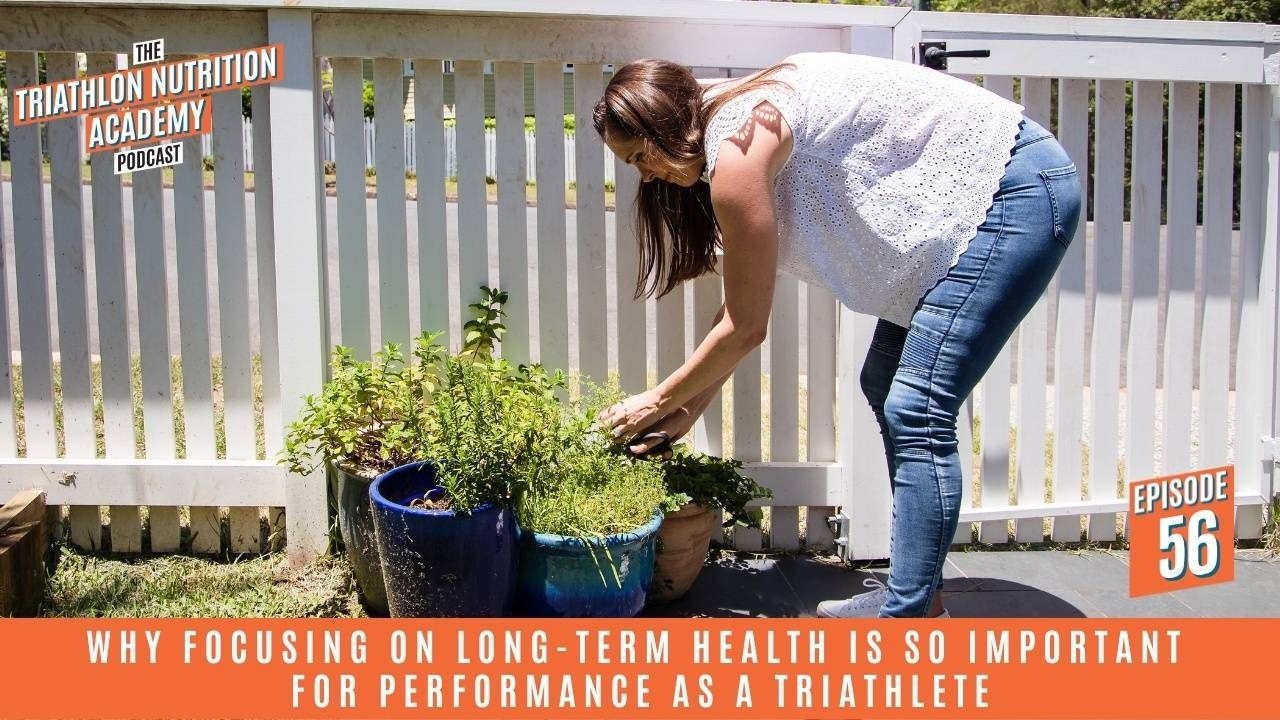
I'm a big advocate for nutrition. Your body is the number 1 thing that will get you to the finish line.
Yet most triathletes see a dietitian LAST, after they've:
- Tried and failed to get their ideal body composition
- Tried every random fad or quick fix diet
- Struggled with fuelling and vomited their guts up on the run, had to race to the loo multiple times, or planned their training runs around the toilets on their route!
- Bonked, hit the wall, repeatedly fallen into a hole or peeled themselves off the pavement
- Suffered from a stress injury/fracture or chronic fatigue.
As an Advanced Sports Dietitian, I can help you with your training and a meal/race plan and I've worked with many triathletes, both 1:1 and in the Triathlon Nutrition Academy. What I, and they, can tell you, is the long term benefits kick in when you engage further - take ownership, prioritise your overall health and learn and understand the foundations - the HOW and WHY of nutrition.
- Control the contro...
Triathlon Training Nutrition 101

When it comes to Triathlon Nutrition there's A LOT you can do to maximise your performance.
Once you’ve figured out the basics of the sport – what you put in your mouth is the next thing you need to turn your attention to (BEFORE you drop $20K on a new bike) because nutrition really is the fourth leg! Your body is what’s going to get you to the finish line faster.
Success in triathlon comes from being minimally affected by the swim and the ride. It's about getting to the run in the best possible shape that you can so that you can continuously run without stopping or bonking or hitting the wall or vomiting your guts up and trying to keep a nice even pace on the run.
I explain the 'what, why and how to' of triathlon training nutrition 101 - the foundations including:
Pre training nutrition
- Do you have a plan for different types of training sessions?
- Do you know how much you need to have before a session?
- Do you know what types of foods to eat?
- Is your calcium and iron i...
Why aiming for 120g of carbs per hour is a mistake
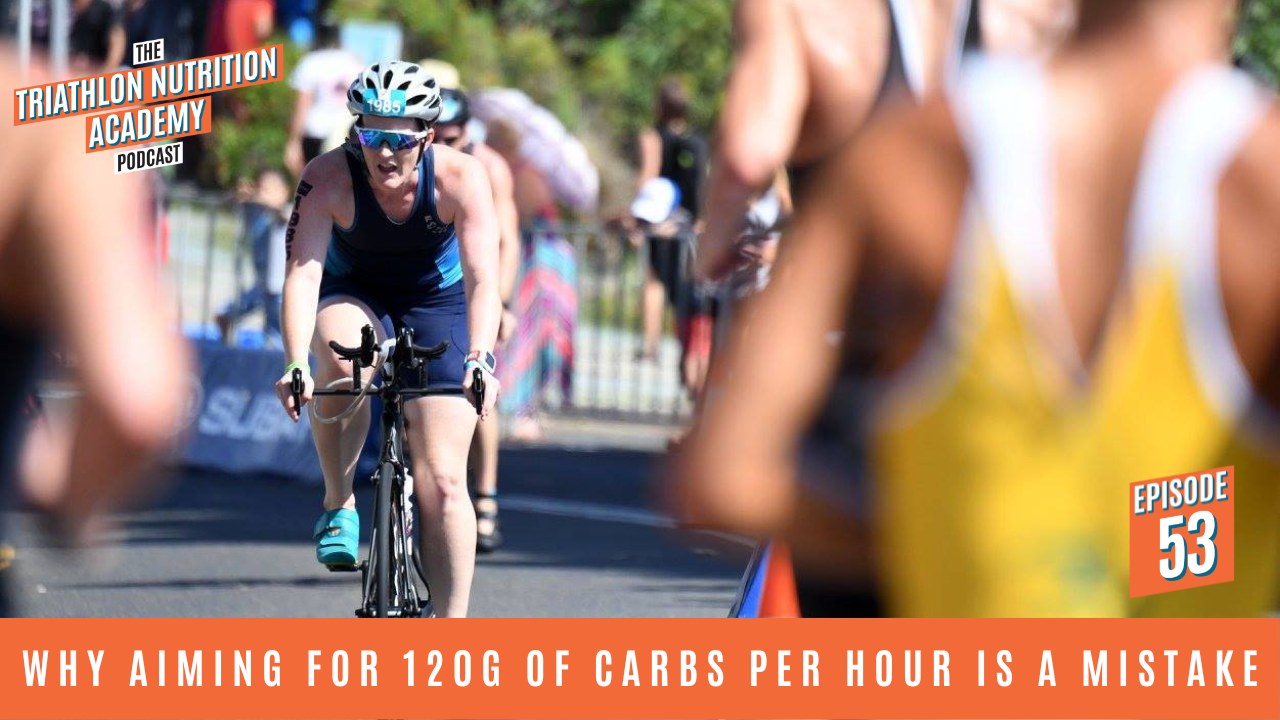
Why aiming for 120g of carbs per hour is a mistake
This statement may be seen as controversial - but if I don't say it, then who will!??
Putting my Advanced Sports Dietitian's hat on, I can tell you that aiming for 120g of carbs an hour is a mistake!
And let me tell you why...
For the majority of you, it is a mistake, because you're not going to be able to tolerate that level of fueling.
- The research (a paper in 2020* that came out of Spain by Aitor Viribay and his colleagues) was done with elite athletes, under very specific testing conditions. It's great research but not necessarily applicable to the average age grouper.
- Intestinal absorption is the rate limiter - you can consume it, but it's of no value if your body can't absorb it and the longer you're out there for, the more things will back up in your gut.
- If you are going to aim for 120g of carbohydrates an hour you need to build up to it, systematically and strategically, to avoid gut issues - nausea, fullness, slu...
How to keep your relationship alive through ironman training build
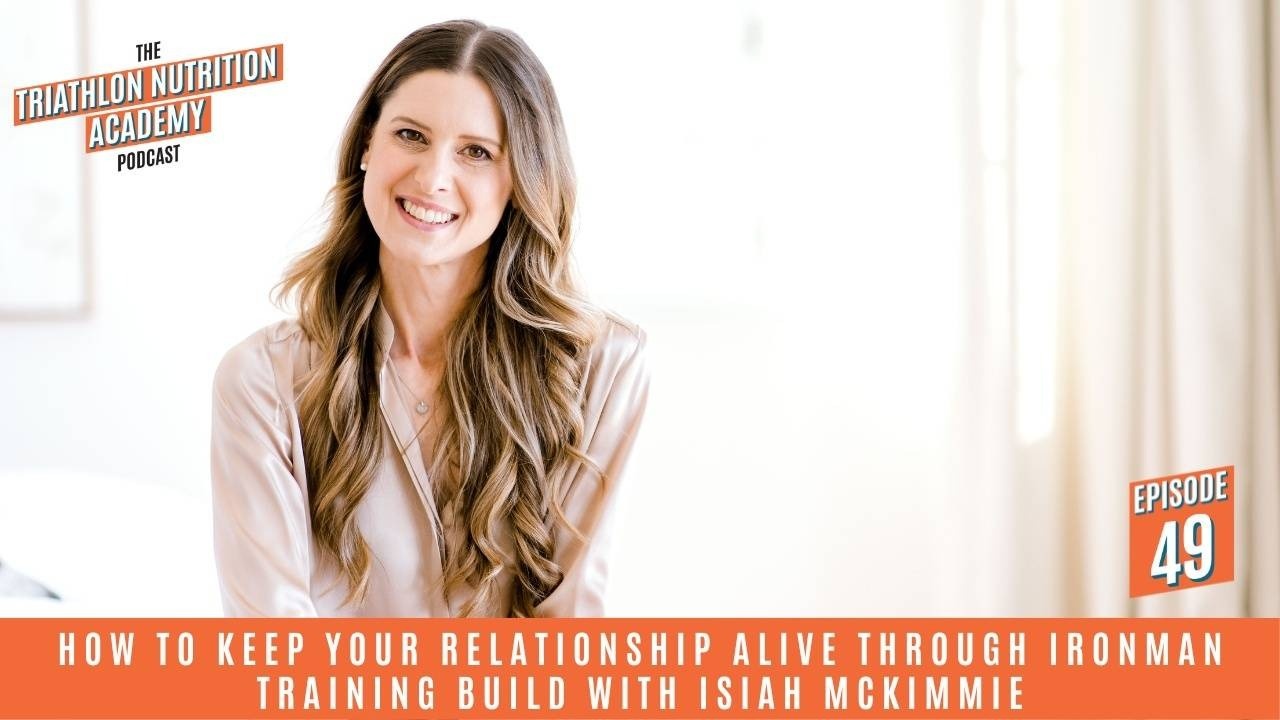
How to keep your relationship alive through ironman training build
I like to take a holistic approach to triathlon. I’ve got the nutrition side covered but feel it’s of value to bring in experts to help you in other areas.
Triathlon is a crazy sport. Training for three sports means you’re up early, home late, you may have a full-time job you need to work around too.
Then the weekend can be taken up by 6 hours rides, long runs. Or race weekends away for races, training camps etc. All this means there aren’t many hours left in the day or days in the week to be at home spending time with your partner.
I see couples and families break down because of triathlon. One partner does the sport and the other doesn’t and it can put a strain on relationships. Or, even if they are there as your no. 1 crew, everything usually gets put on hold until after the event. This is where relationships can also break down.
When you don’t have the support of those important to you, not having your min...
Signs you might not be eating enough to support triathlon training
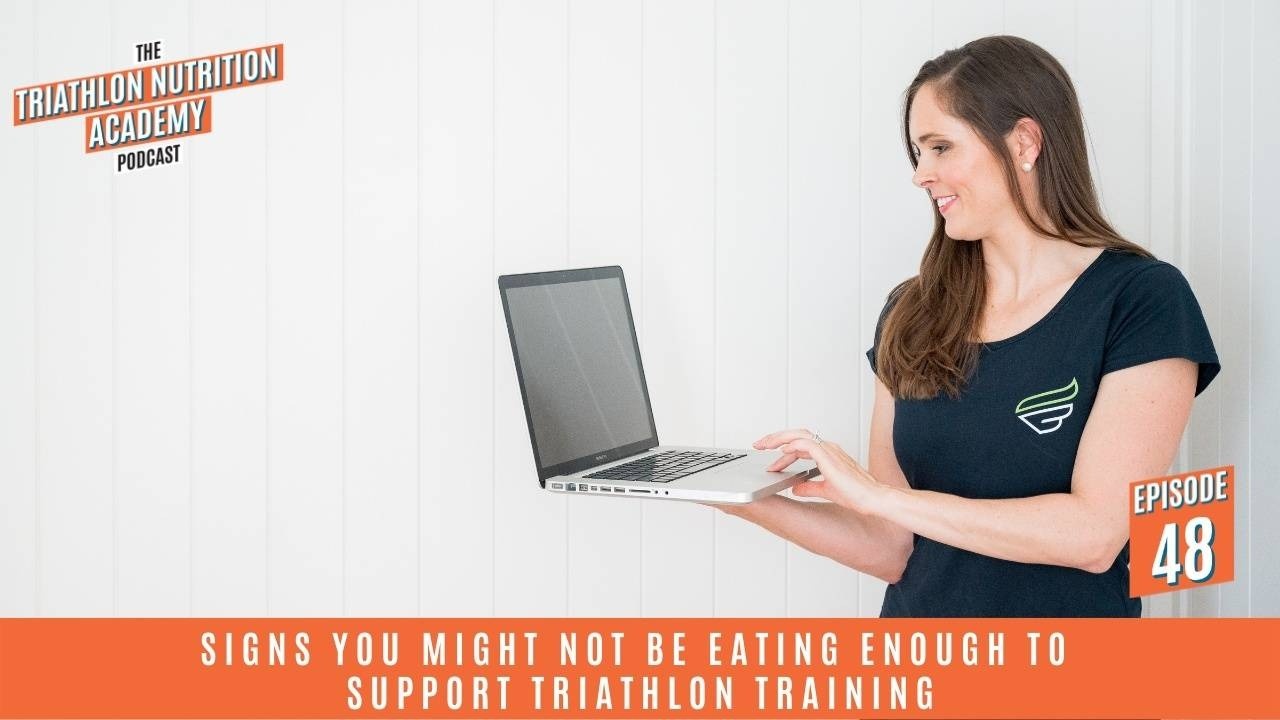
Signs you might not be eating enough to support triathlon training
How do you know if you’re eating enough to support training for three sports?
The body is smart. It will give you some warning signs if you’re not fuelling properly. Some warning signs will be a light touch like a feather, others will be harder like a brick being thrown at you or, louder still, like being hit by a truck!!
Did you know that your body fuels training first, before spending energy to support our daily bodily functions – like breathing, digesting, growing, and living!!??
Here are a few signs you’re not eating enough:
- You’re not training well and/or your motivation to train is low
- You’re not recovering very well or quickly enough
- You keep getting annoying niggly injuries
- You continuously get sick or can’t seem to shake things
- You have weird or exacerbated gastrointestinal issues
- Your menstrual function is light, irregular or completely absent (if not overridden by contraception)
- Your sex dri...
What is a Hydrogel? Does it improve endurance performance?
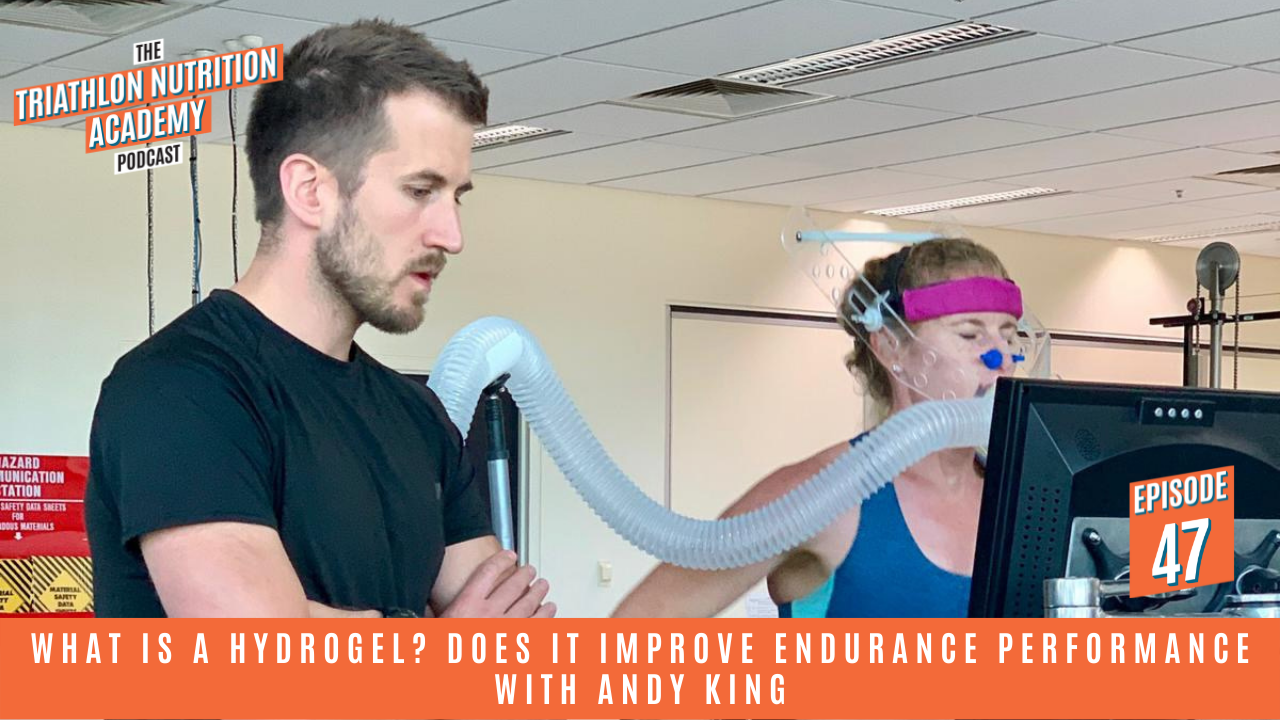
What is a Hydrogel? Does it improve endurance performance?
Hydrogel technology is making a wave in the sports nutrition scene with products like Maurten hitting the market.
But what is a hydrogel? And is it beneficial to endurance performance?
I asked Andy King, exercise physiologist at the Australian Catholic University, to join me on a recent podcast episode. Andy co-authored the review paper on all of the research to date on hydrogels and their effect on endurance exercise performance. So there was no one better suited to answer these questions for us!
What is a hydrogel?
- Basically an amped-up carbohydrate drink
How does a hydrogel work?
- Delivers sugar through the stomach and intestine into your bloodstream to your muscles
- In gel form, it moves the carbohydrate mixture through to your intestine quicker - approx. 40% faster
Are there any negative effects of using a hydrogel compared to regular sports drinks and gels?
- May negatively impact some athletes with...
Real food ideas for on the bike
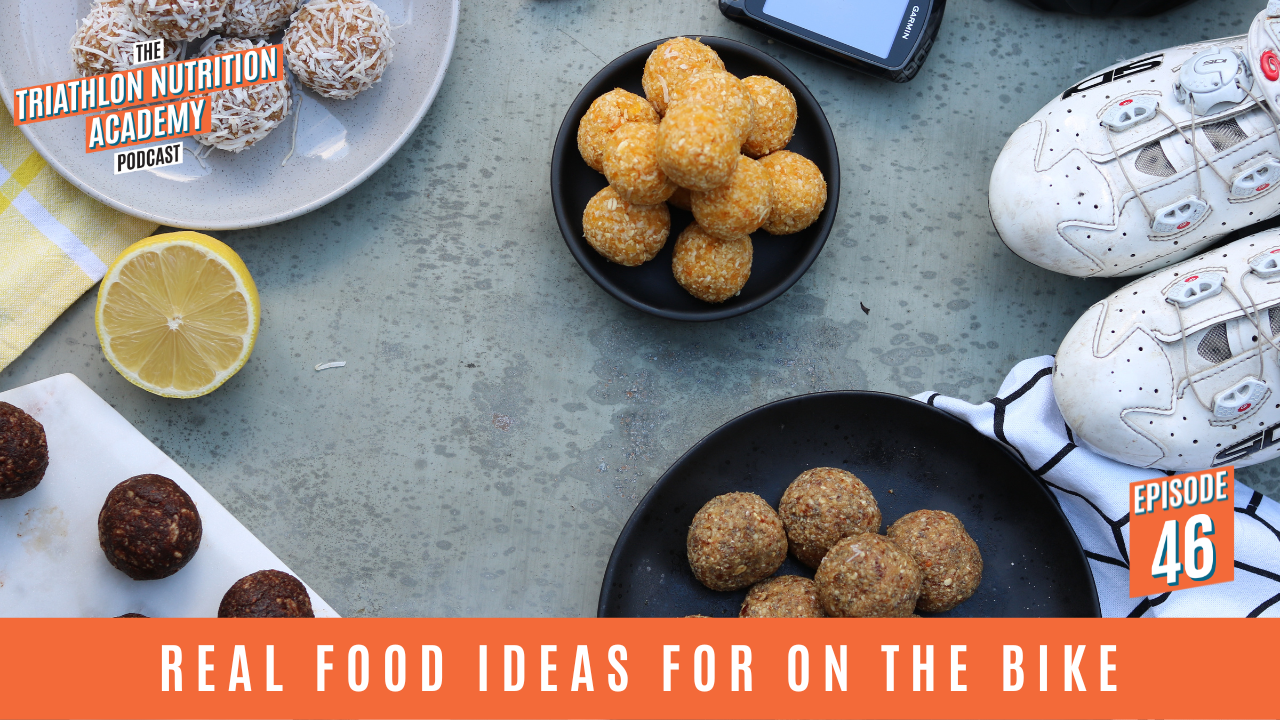
Real food ideas for on the bike
Are you sick of sucking back gels and sports drinks all the time?
Are you looking for more real food options to use during exercise?
Over the years, I’ve definitely seen a movement away from commercial sports nutrition products to more real foods on the bike. But what types of foods are going to help your performance?
When is the best time to use real foods in training?
- During the off-season is a good time to try new options – tweaking your strategies as your fitness, training and racing evolves
What types of real foods are good for on the bike?
- Carbohydrate foods should be your focus
- Try adding some savoury options to avoid flavour fatigue
- Something easy to prepare pre-race or the night before
- Something the right consistency and texture (so it’s easy to get out of the container, but doesn’t crumble or fall apart)
- A good balance of energy/ nutrients - carbohydrates with some healthy fats and a little bit of protein
- Something th...
Tips for food prep and organisation for the time poor athlete

Tips for food prep and organisation for the time poor athlete
Eating for optimal health and performance doesn’t happen by accident. Think of the food choices you make when you’re time poor or in a rush…
- You’re more likely to get takeaway or eat out
- You’re more likely to grab and go whatever is available, quick and easy to fill a hole
- You’re more likely to eat a bowl of cereal for dinner
- You’re more likely to smash a protein shake after a session and go to bed without ticking all of your recovery boxes
I'm a black belt organisation ninja! Let me teach you some of the strategies I use to help my athletes eat better, even when they’re time poor. A little bit of time spent in preparation and organisation goes a LONG way when you’re trying to juggle training, work and family commitments!
Weekly Planning
- This is the biggest game-changer
- Don’t fly by the seat of your pants – get ORGANISED!
- Involve the whole family
- Whiteboard in the kitchen or pantry
- Make use of the Die...
Eating for Immunity: Ideas to help you stay well this winter

Eating for Immunity: Ideas to help you stay well this winter
Now that the colder months are upon us, it’s time to be proactive with our nutrition for the best immune system defence.
For active people, immune function plays a role not only in fighting off infections but also in promoting tissue repair to recover from exercise and injury. To function properly, the immune system requires lots of nutrients – both macro and micronutrients.
For a triathlete under a heavy training load, requirements are even higher - putting you at risk of a suppressed immune system if you’re not meeting your needs.
To help you stay well over the colder months, I’ve put together a few key points to keep you firing on all cylinders this winter!
1. Rest and Recovery is Key
- Moderate training loads can support the immune system
- Heavy training loads, particularly with high-intensity sessions, can compromise the immune system
- Immune system down for 72 hours following high-intensity training making...


